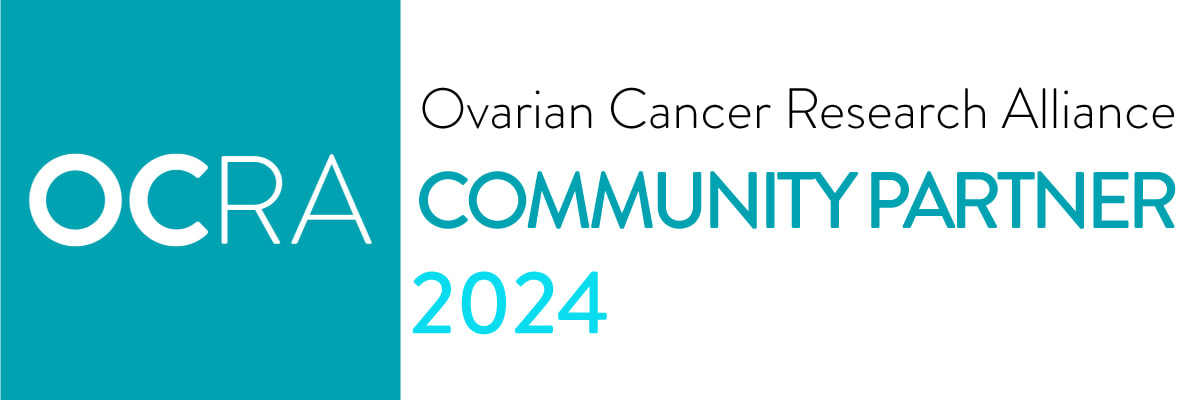|
The U.S. Food and Drug Administration has granted an orphan drug designation to a low-grade serous ovarian cancer treatment currently in clinical trials—a huge step forward for treating a rare cancer with a high rate of recurrence.
Verastem Oncology received the orphan drug designation for the drug avutometinib alone or in combination with defactinib for the treatment of patients with recurrent low-grade serous ovarian cancer. LGSOC is a distinct ovarian cancer, making up 5-10% of all ovarian cancer diagnoses. While the cancer cells are slower growing than the more common high-grade serous ovarian cancer, LGSOC tends to be resistant to chemotherapy, leading to poor outcomes. It also disproportionately affects younger women, with an average age at diagnosis of 45. Diagnosis is often delayed because LGSOC symptoms can be confused with other illnesses. Symptoms include bloating, feeling full quickly, fatigue, indigestion, menstrual irregularities, changes in bowel habits and painful intercourse. VOICES OF LGSOC The FDA’s orphan drug designation comes on the heels of the first-ever externally led patient focused drug development meeting that STAAR Ovarian Cancer hosted last fall. The meeting amplified the voices of patients with LGSOC and conveyed to the FDA that this is a distinct disease in need of specialized treatment. “Our stories, experiences and advocacy during the meeting served as a powerful catalyst,” said STAAR Board Chair Nicole Andrews. “It brought attention to the urgent need for more research, better treatments, and a deeper understanding of the challenges faced by those with low-grade serous ovarian cancer. Verastem Oncology's orphan drug designation is a direct example of our collective effort, showcasing the real-world impact of patient advocacy.” ORPHAN DISEASES Orphan drug designations are granted to drugs targeting rare diseases with unmet medical needs—such as LGSOC—providing incentives to pharmaceutical companies, including extended market exclusivity and financial incentives, encouraging investment in research and development for rare diseases. “The FDA Orphan Drug Designation for avutometinib alone or in combination with defactinib in low-grade serous ovarian cancer is an important step in recognizing this rare cancer as a distinct disease that currently has no FDA-approved treatments,” said Dan Paterson, president and chief executive officer of Verastem Oncology. “We are rapidly advancing the development program for avutometinib and defactinib in low-grade serous ovarian cancer with our ongoing Phase 3 clinical trial to deliver this new combination treatment to patients as quickly as possible. We remain on track to begin submission of an NDA to the FDA for Accelerated Approval of this combination in the first half of 2024 and preparing for a potential launch in 2025.” An orphan disease is a rare disease or condition that affects fewer than 200,000 people in the United States and are serious or life threatening. In 1983, the U.S. government passed the Orphan Drug Act to give drug companies financial benefits for developing orphan drugs. This law is meant to help bring more drugs to patients with rare diseases. “This orphan drug designation is a beacon of hope for those with low-grade serous ovarian cancer,” Andrews said. “It encourages pharmaceutical companies to invest in groundbreaking treatments, ultimately transforming the landscape for patients who have long been underserved.” Advantages of Orphan Drug Designations for LGSOC: 1. Targeted Therapies: Orphan drug designations facilitate the development of targeted therapies tailored to the unique molecular and genetic characteristics of LGSOC, enhancing treatment precision and efficacy. 2. Accelerated Approval Process: The orphan drug designation expedites the regulatory approval process, allowing promising treatments for LGSOC to reach patients more swiftly, addressing critical unmet needs in a timely manner. 3. Research Investment: By incentivizing pharmaceutical companies to invest in LGSOC research, orphan drug designations foster innovation and the exploration of novel treatment modalities, ultimately expanding the therapeutic armamentarium against this rare disease. 4. Patient Access: Orphan drug designations enhance patient access to innovative treatments by facilitating affordability and availability, ensuring that individuals afflicted with LGSOC have equitable access to potentially life-saving therapies. STAAR Ovarian Cancer Foundation is the only U.S.-based nonprofit dedicated to low-grade serous ovarian cancer. It was co-founded by three women with LGSOC in early 2020.
0 Comments
|
Archives
April 2024
Categories |

 RSS Feed
RSS Feed

